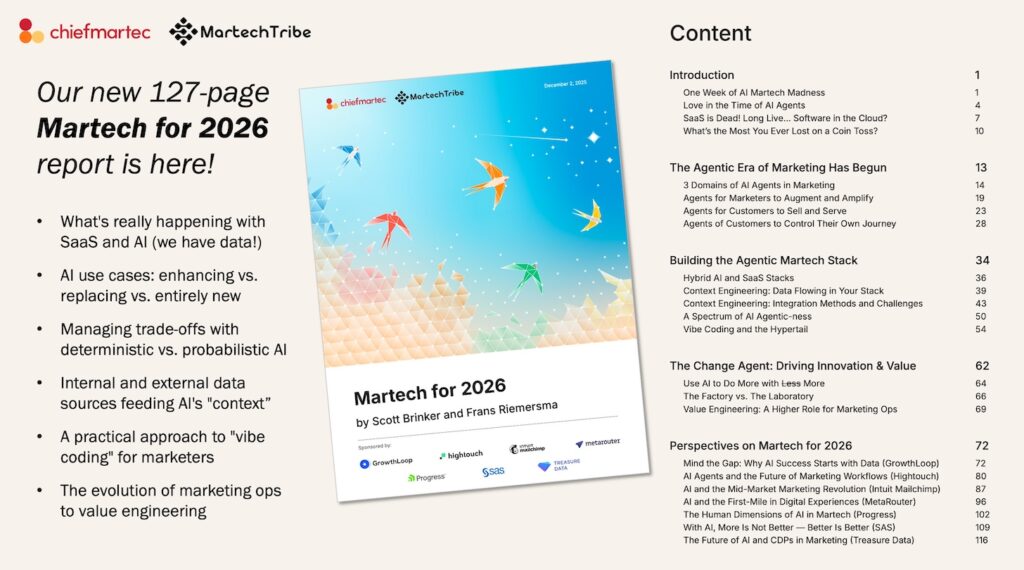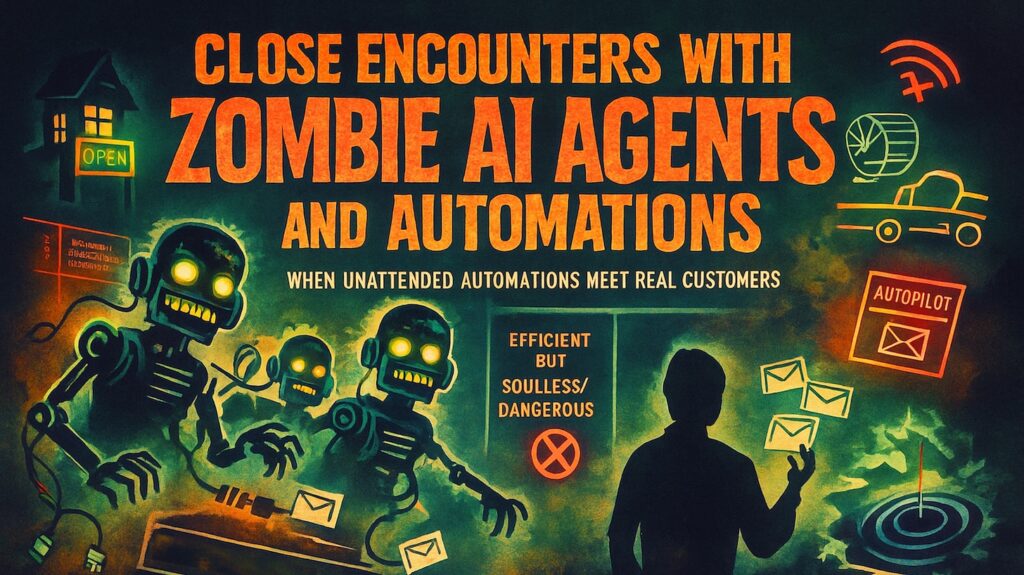“Technology is just a tool.”
This is a popular refrain in discussions around marketing technology. Marketers invoke it as a way to emphasize the marketing over the technology. And IT invokes it as a way to categorize marketing technology as the same as any other kind of technology. Since marketing and IT are both a little uneasy about the explosion of marketing software, it’s a nice bromide.
I agree that technology is just a tool.
But there are two implications of that statement. The first, which is what’s usually meant by it, is that technology by itself doesn’t produce brilliant marketing.
Just because you go out and buy the latest-and-greatest marketing automation system, doesn’t mean that it will suddenly improve your marketing. If you don’t have a compelling vision that you’re driving towards — or intuition about the pieces that are required to execute to that vision — the best tools in the world aren’t going to help. The marketing applied to marketing technology is more important.
That’s completely true in my opinion. In fact, it’s one of the reasons why I’m skeptical of IT playing too dominant of a role in the management of marketing technology — they might understand the technical mechanics of the tools, but not have any real sense of how that relates to marketing, branding, and customer experiences.
But there’s another implication of this technology-as-a-tool meme that’s just as important, but less frequently acknowledged. As any craftsman will tell you: you need the right tool for the right job — and know how to wield it proficiently.
If you don’t think that’s true, I suggest you try carving wood with your teeth. (“Leave it to Beaver.”) Or, at a larger scale, try building a state-of-the-art skyscraper without the right heavy equipment: bulldozers, cranes, pile drivers.
In our construction analogy, to be sure, the architect is the seed of the vision. That’s more important than the particular crane used to assemble the frame of the skyscraper. A bad architect dooms a project from the start.
But it’s also true that a superb architectural vision is wasted, if the right materials and equipment — and the necessarily skilled people to leverage them, from structural engineers to machine operators — aren’t brought together. When it comes to turning the dream into reality, you can’t separate the technology from the implementation. They’re inherently entwined in execution.
In fact, the interdependency with technology usually starts much earlier in the process — most truly adept architects happily embrace new technologies in their work because they enable new possibilities and inspire qualitatively different designs. The technology and their talent become entwined as well.
So it is with marketing technology.
By no means are the tools a panacea. But if you aren’t proactively looking to understand how these technologies can advance the possibilities of marketing — or you aren’t developing technology competency within your marketing organization to deliver on the promise of those possibilities — you’re kind of like an architect who believes that bricks and mortar are sufficient.
For some projects, they may be. But you probably won’t be building any skyscrapers.





I’ve seen many techs move over to marketing in the post-click world to take advantage of this. For years they saw and understood data, and new marketing tools give an opportunity to reach more into the business and take it to the next level.
A strong IT department that understands the business empowers marketing experts, and sees itself as a true partner of marketing. This is a critical relationship these days, with plenty of bleed over coming. None of the business unit as a “customer” paradigm that is echoed too often.
Good times for both areas.
Thanks for the comment, Andrew.
I tend to think that its best for marketing to have its own technologists within the department — although depending on the size and scale of the enterprise, a near-perfectly aligned IT might be just as effective. But even in the case of having marketing technologists on staff in marketing, I expect that many of those rising stars will have come from a background in IT. Especially those who really have been focused on the business value of the data and the tools throughout their careers.
I agree with you: good times, plenty of opportunity!
Right on Scott — I think living the dream is technologists embedded in business units (I am one myself) who are able to work closly with a well aligned IT department.
Super stars have always been those who understood core business areas, and IT is one of those power sectors these days (good for us all).
Thanks again for the good read.
Great post! I am fond of saying “it’s not the tool, it’s the craftsman”, but I think that doesn’t do justice to the tool and it oversimplifies the symbiotic relationship between the two. The craft is important, but it falls flat without the right tools in place.
Thanks, Anna. I love your metaphor about marketers as craftspeople. Nicely combines the ideas of vision, skill, and pragmatism. I’m not sure that the marketers of the Mad Men era would appreciate the label, but for 21st century marketers it strikes me as a real badge of honor.
I agree, technology is the tool, what we as marketers do with it is key. Not everyone understands the tool and how to use it, but in this day and age, must be willing to learn.